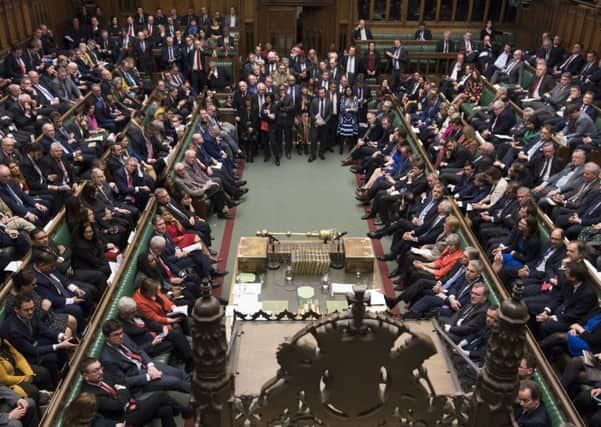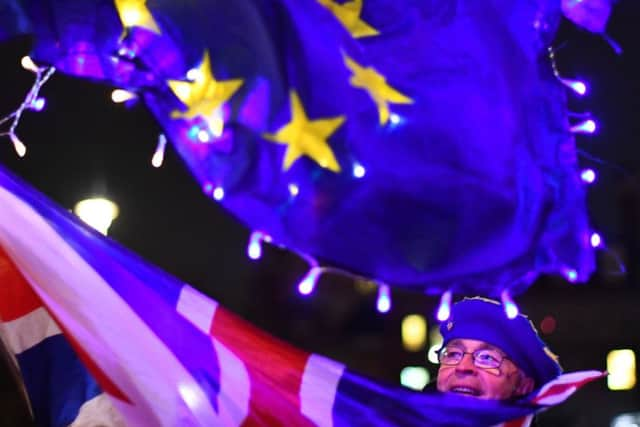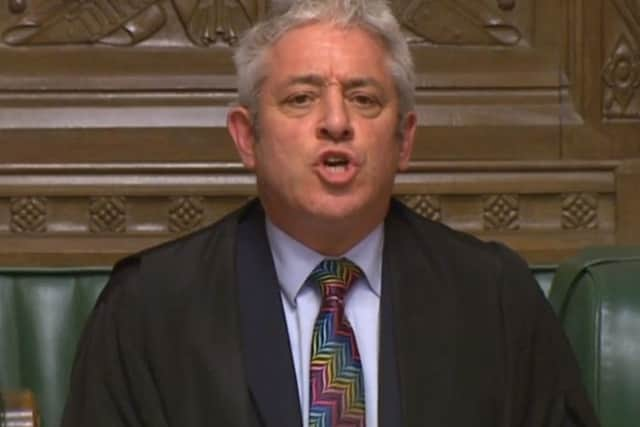Tom Richmond: Lock MPs in House of Commons until they break Brexit deadlock - it’s what the public wants


Or had they as he boomed ‘unlock’ in another quaint ritual that follows each division? Even though there was a clear majority for a double negative – ‘no’ to a no-deal under any circumstance – the vote, arguably a positive move given the prevailing political and economic uncertainty, was only advisory and leaving the EU on March 29 is still the legal default position.
This was clear when Mr Bercow, with the eyes of the country on him, reassured Jacob Rees-Mogg, the arch Brexiteer and constitutional historian, that “a motion of the House does not override statute law”. So no change then as the public’s original instruction, so simple in theory, proves so difficult in practice.


Advertisement
Hide AdAdvertisement
Hide AdAnd all this before yet another groundhog day in which MPs – depending on the interpretation of the status of the motion – ventured that the will of Parliament takes precedence over the will of the people by voting to request the extension of Article 50, thereby putting on hold Britain’s supposed exit from the EU in just a fortnight’s time.
Leaving aside that this is a matter for the EU, it was conceivably another exercise in futility which only served to highlight, still further, the disintegration of Parliament’s relationship with its people as MPs prove incapable of working together in the national interest.
It was clear, before this, that party politics had broken down. The Tories are ungovernable as collective responsibility and discipline breaks down; intolerance prevails in Labour, the supposed party of tolerance, and any momentum that the new Independent Group had has come to a halt.
What hope is there for Britain – and this country’s economy and sovereignty are pivotal to Brexit – when Theresa May, chief whip Julian Smith (who now rivals Chris Grayling for ineffectiveness) and many other senior Ministers appeared so bewildered.


Advertisement
Hide AdAdvertisement
Hide AdNo change there, you might conclude, but Parliament’s credibility also faces ruin as anger and acrimony break out in the tea rooms, and on the WhatsApp messaging groups, where so much real power now rests.
It has not asserted itself when the Government was found to be in contempt for keeping MPs in dark, delayed votes, ignored decisions and started making up rules as it went along, all while Theresa May pursues a lose-to-win strategy over her Withdrawal Agreement that she justifies by reminding senior Brexiteers that they have offered no viable plan of their own since June 2016.
And MPs – the very people who granted the original EU referendum and then voted to trigger Article 50 – appear oblivious to how their antics are playing out with the public as rows over procedure take up a disproportionate amount of time and energy.
This much was clear when Tory grandee Dame Caroline Spelman, a former Cabinet Minister, rose to her feet to read out an email she had received from a Brexit-backing constituent after Mrs May’s deal was defeated by 149 votes.
Advertisement
Hide AdAdvertisement
Hide AdThey had written to her and said: “I wish you could read this email in Parliament...The public ‘17.4 million’ – we are nobodies, we do not matter, we are just a tax code number, we do not count, we do not have any rights in our democracy and our democracy in this country is now proven to be dead.”
Powerful words – but there were just a smattering of MPs present. Of those visible on the Tory benches, one was reading the Order Paper and another staring at their iPad. What contempt.
Yet the voter’s message to their MP ended with this withering warning: “Mrs Spelman I can tell you this (and wish you could read it to all MPs), I’m done with voting. As are my family and in conversation on social media tonight many of my friends are done with voting too.”
And was anyone listening? No. Cameras showed other backbenchers sending text messages and a senior MP appearing to be having a snooze as it dawned on Mrs May that she no longer had the authority to sack the four Cabinet Ministers who broke ranks.
Advertisement
Hide AdAdvertisement
Hide AdThe irony is that Dame Caroline’s motion – backed by Pontefract, Castleford and Normanton MP Yvette Cooper – has the potential to delay Brexit indefinitely. Equally, it might afford the PM a third chance to convince colleagues that her bad deal is better than no deal, the precise opposite of what she has been saying.
But there are no guarantees. To even to attempt this would be to defy Erskine May, the Parliamentary handbook, which says “a motion or an amendment which is the same, in substance, as a question which has been decided during a session may not be brought forward again during that same session”.
Yet, as the extraordinary becomes the new ordinary and centuries-old conventions now unconventional, perhaps John Bercow might break another ancient tradition after the next so-called vote, change his script, shout ‘lock the doors’ and force MPs to stay in the Chamber until they have reached a collective decision. One thousand days after Britain voted to leave the EU, there is only one certainty to this uncertainty – it cannot continue like this.